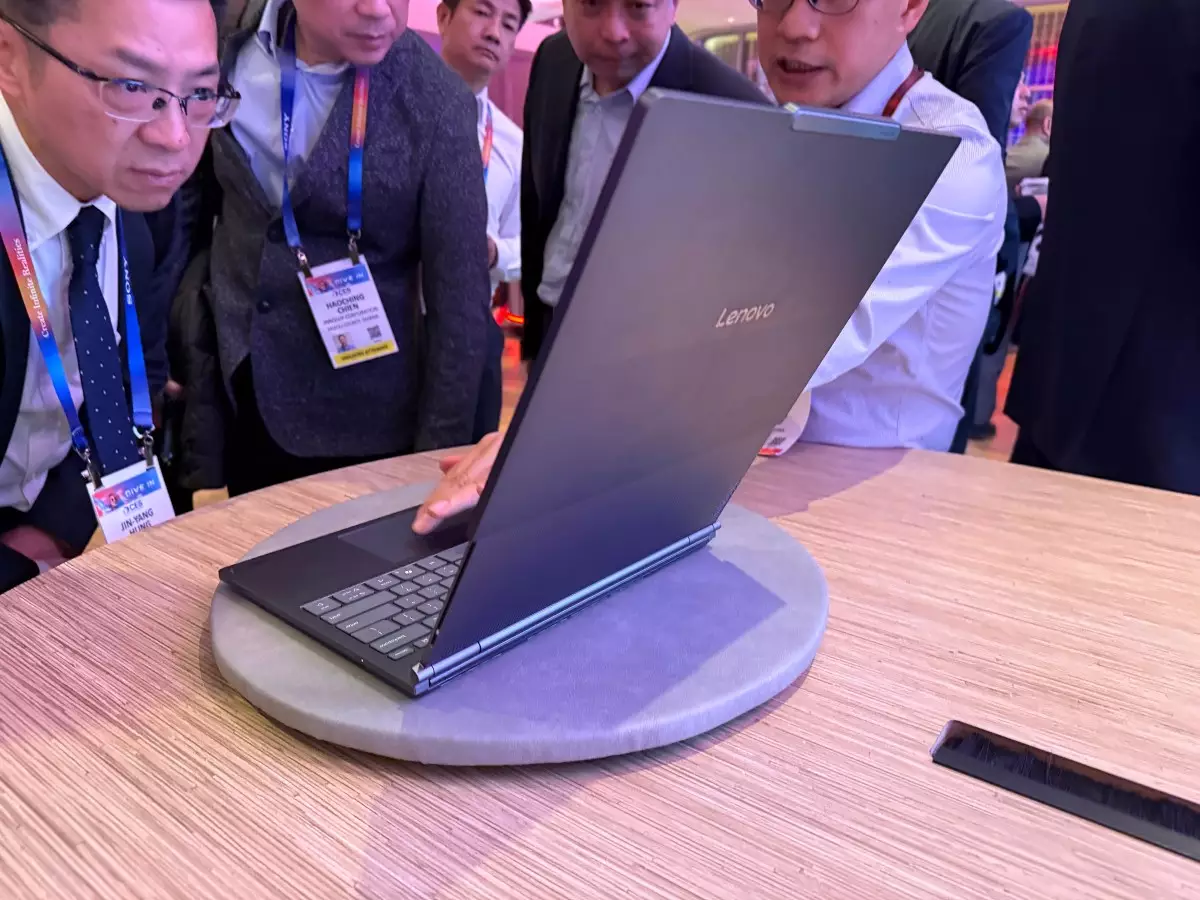In recent years, the consumer electronics industry has become synonymous with cautious innovation. Major corporations, particularly in the realm of hardware, often shy away from substantial deviations in their product designs. Incremental updates have become the norm, manifesting as slight enhancements in specifications—whether they pertain to screen resolution, battery life, or even aesthetics. This methodical approach can make the market feel stagnant, drawing critical attention from savvy consumers who are yearning for something beyond the typical annual refresh cycle.
Lenovo, however, has consistently positioned itself as an outlier in this conservative ecosystem. By proactively showcasing a blend of both functional products and imaginative concepts, the company presents an inspiring vision of where technology might head. At CES 2025, Lenovo further cemented its reputation as a pioneer by unveiling the ThinkBook Plus Gen 6—a striking example of forward-thinking design that illustrates the potential for creativity in an industry that often refrains from risk.
The ThinkBook Plus Gen 6: Unrolling New Possibilities
The ThinkBook Plus Gen 6 embodies transformative engineering with its impressive rollable display, which expands from a compact size to an impressive 16.7 inches. Although the transition to full screen takes a mere 10 seconds, the experience feels both futuristic and practical. It raises the question of why such a product exists, and while the surface-level answer may be that it embodies cool technological prowess, the deeper appeal lies in its functionality. For users constantly on the move, having a larger screen that can be neatly stored and transported offers tangible benefits akin to those seen with foldable smartphones.
Lenovo’s showcase wasn’t limited to the ThinkBook alone; the company also presented several concept devices that, while not yet ready for market, point toward a promising future for PC technology. One notable highlight is a large-screen desktop that integrates motion tracking capabilities to follow the user throughout their workspace. This advanced feature not only enhances the user experience but reflects an evolving understanding of how technology can adapt to its user environment.
Moreover, Lenovo’s commitment to sustainability resonates through the materials used in its hardware design. By incorporating bamboo and corn-based components into their product cases, they take significant strides toward greener manufacturing practices. Paired with a wireless keyboard that charges through ambient light, these innovations signal a sophisticated, modern, and environmentally conscious approach to consumer electronics.
Lenovo’s initiatives at CES 2025 serve as a clarion call for other manufacturers within the consumer hardware sector. Rather than resigning to the limitations of incremental updates, the industry at large could benefit from greater willingness to embrace innovative concepts and sustainability. As technology advances, it is essential for companies to not only respond to consumer demands but also to inspire them with groundbreaking ideas that reshape expectations. The future of consumer electronics is bright—and it might just take a few more bold moves from leaders like Lenovo to illuminate the path forward.

